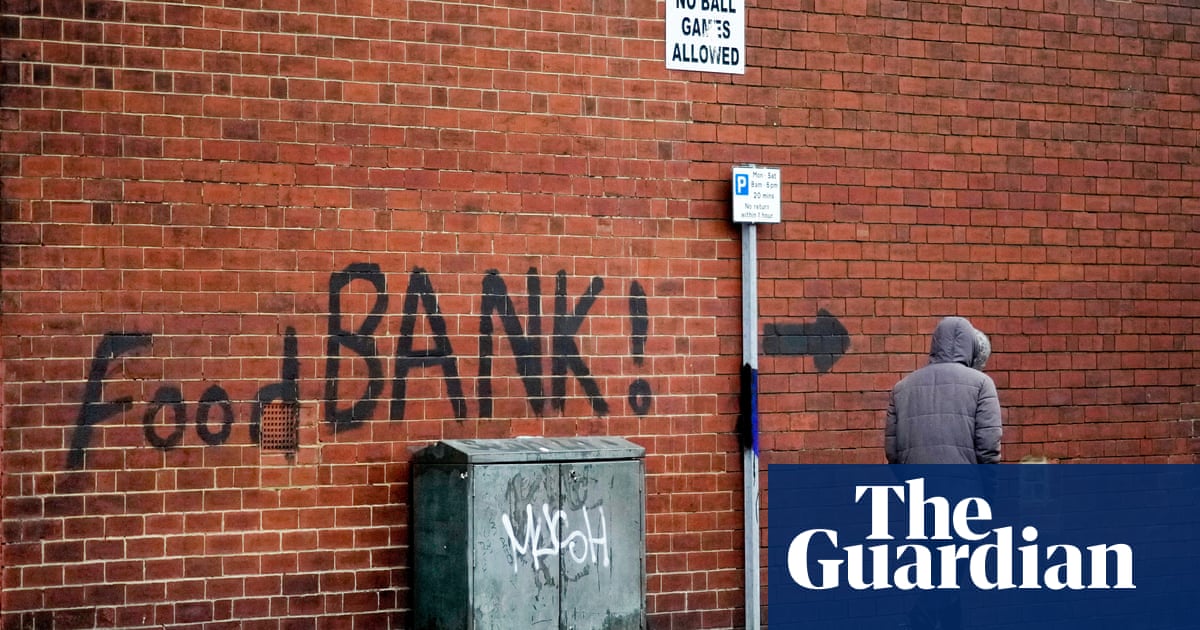Photo credit: www.theguardian.com
Keir Starmer faces criticism regarding Labour’s stringent approach to benefits, with implications that this policy might be costing the British economy billions annually while adding strain to public services and exacerbating poverty levels.
The anti-poverty organization Trussell has raised alarms that neglecting issues of hunger and hardship could lead to significant human suffering and adversely impact the broader economy and public finances.
In response to Labour’s pursuit of savings from welfare expenses, despite prior assurances against a return to austerity, Trussell pointed out that persistent poverty levels in the UK are resulting in a staggering loss of over £38 billion each year in economic potential.
This statement emerges as the government is set to unveil a long-anticipated strategy aimed at combating child poverty, scheduled for June. This comes amidst rising tensions among Labour MPs who oppose the £5 billion benefit cuts proposed by Chancellor Rachel Reeves during her spring address.
Recently, it was revealed that ministers are not considering the repeal of the controversial two-child limit established under previous Conservative leadership, despite warnings from charitable organizations that failure to act could lead to the highest recorded levels of child poverty in history.
Trussell criticized the government’s benefit reductions and urged a reassessment of its stance on abolishing the two-child limit. The charity argued that any minor savings achieved through welfare cuts need to be weighed against the larger detrimental effects on the UK economy, public finances, and individual welfare.
A report commissioned by Trussell, prepared by analysts at WPI Economics, highlighted that millions of individuals suffering severe financial hardships are contributing less to the economy than they could be.
Approximately 9.3 million people in Britain were reported to be experiencing hunger and hardship in the financial year ending in March 2023. This includes around 6.3 million adults and 3 million children, defined as those living more than 25% below the poverty line established by the Social Metrics Commission, which takes into account household savings and income.
The report linked financial struggles to decreased opportunities for stable employment. Lower employment rates and sluggish productivity contribute to the economy losing out on £38.2 billion in annual output.
The Treasury also faces an estimated shortfall of £18.4 billion in tax revenues and an additional burden of approximately £5.3 billion in social security payments for support aimed at the unemployed and those receiving in-work benefits.
Moreover, individuals in deep poverty are more likely to require assistance from the NHS, social care services, homelessness support, and the education system, resulting in additional governmental expenses of about £13.7 billion attributed to high poverty levels.
This burden includes around £1.5 billion allocated to schools to support poverty-stricken children through programs like free school meals and the pupil premium.
Trussell acknowledged that while the costs associated with poverty cannot be instantly rectified, timely policy adjustments are essential to improve the financial circumstances of households.
Abolishing the two-child limit could potentially raise 670,000 individuals, including 470,000 children, out of hunger and hardship, resulting in a decrease of over £3 billion in costs to the economy, public services, and the Treasury.
Trussell also called for an “urgent rethink” regarding the cuts to disability benefits and proposed updates to universal credit to better shield individuals from hunger and hardship through a new “essentials guarantee,” which could assist over 2 million people in escaping deep poverty.
Helen Barnard, Trussell’s director of policy, research, and impact, remarked: “Reducing support for disabled individuals who require protection from hunger is both cruel and irresponsible. It is out of alignment with public sentiment and could lead to further strain on public services and the economy.”
She emphasized the government’s ethical and economic duty to address hunger, warning that increasing numbers of people could turn to food banks if no actions are taken, and expressed belief that there exists a better path forward that would yield significant benefits for both individuals and society at large.
A spokesperson from the Department for Work and Pensions responded, stating: “We have outlined a comprehensive series of reforms to health and disability benefits aimed at genuinely assisting people in returning to work and alleviating poverty, while ensuring that the welfare system remains sustainable for those in need.”
They highlighted a £1 billion employment support initiative designed to promote job accessibility as part of the government’s broader Plan for Change, alongside necessary increases to the living wage, enhancements to benefits, and implementing fair repayment rates to assist more than one million low-income households on universal credit.
Source
www.theguardian.com

